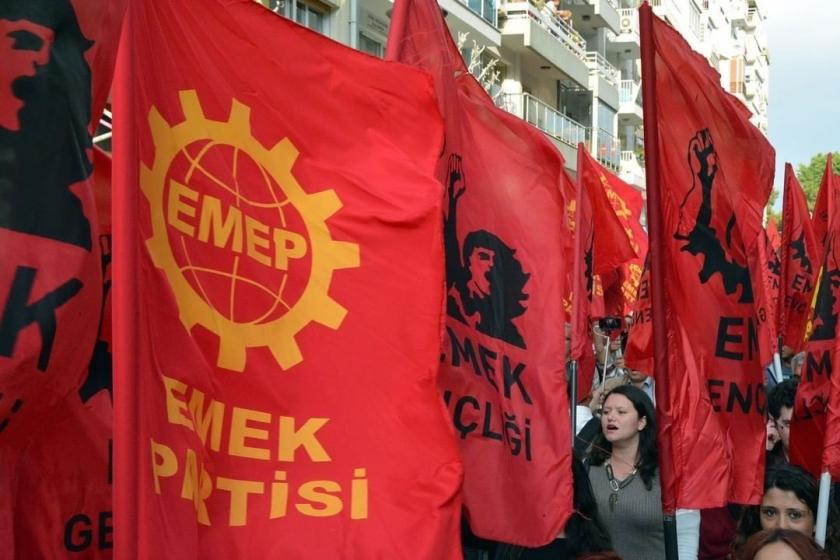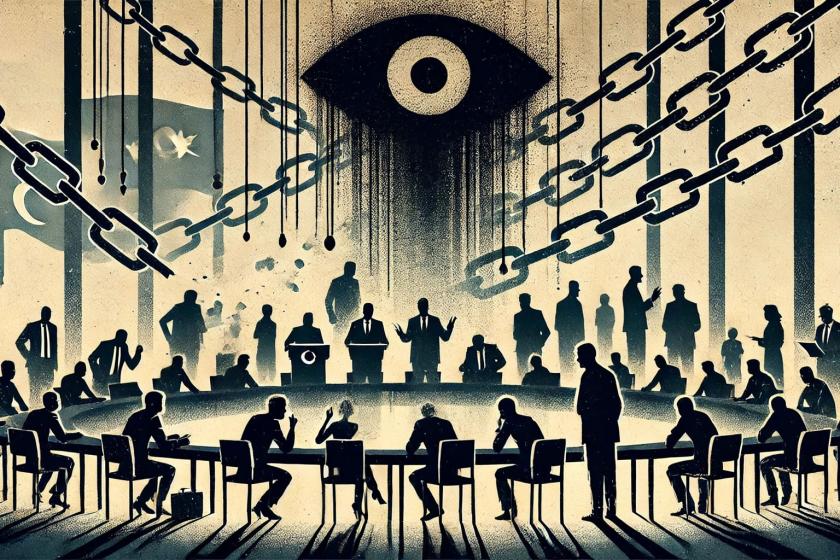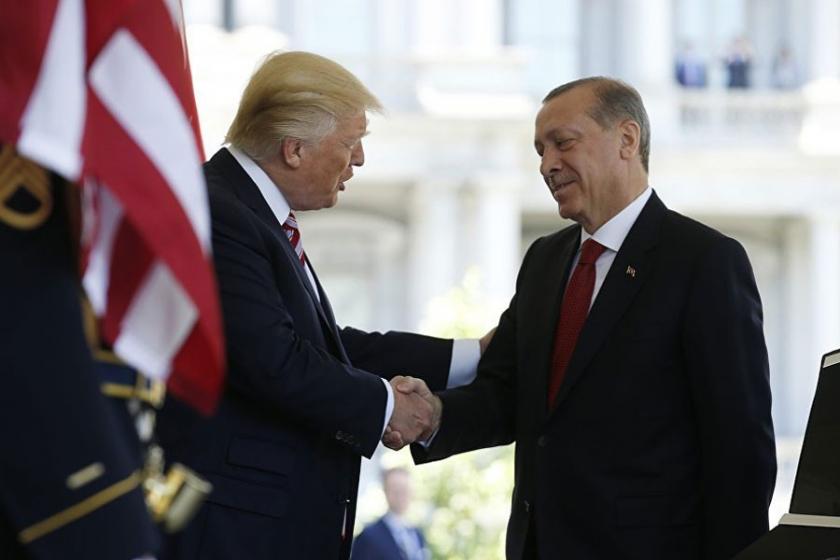The Central Executive Committee (MYK) of the Labour Party (EMEP) published a comprehensive assessment of the recent economic and political developments. The statement called for a struggle against the policies of the one-man regime and drew attention to many issues ranging from the Kurdish question to the economic crisis, from international conflicts to demands for social justice.
The statement emphasised that the living conditions of the working people are getting harder and harder and that the genocide in Gaza and the Israeli attacks have expanded geographically and increased their violence with the support of the USA and its western allies. EMEP stated that the ruling classes of Turkey are trying to "turn these international conditions into an opportunity" and criticised the policies that are formed in accordance with the interests of the capitalist class. The statement underlined the insincerity about the solution of the Kurdish question and said: "The Kurdish question is treated only as a tool to protect the interests of the government, far from a solution based on equal rights. Society should be sensitive to the plans to strengthen the regime through constitutional amendments”. It was stated that the acceptance of the Kurdish national existence, the right to education in the mother tongue and the recognition of Kurdish as an official language are the first steps necessary for a solution.
Emphasising that the interests of the workers and the people can only be protected through organised struggle, the statement said: "The objection against high inflation and low wages is growing in large sections of society. Women are raising the struggle for equality and against violence. The united rise of these objections will be the most effective response to the one-man regime's policy of dividing the opposition. Building a united line of struggle for work, peace and freedom is the most effective answer to the oppression and exploitation policy of the current regime. The way to overcome the problems created by the one-man rule is through the organised power of the people”.
The Labour Party’s statement is as follows:
THE CAPITALIST CLASS AND THE STATE ARE TRYING TO TURN THE CLIMATE OF VIOLENCE INTO AN OPPORTUNITY
Turkey is in a situation where wages are being rapidly eroded, the 2025 budget written for capital is being imposed, the living and working conditions of the whole society, especially of the workers, are being worsened and violence against women and children is escalating. Israel, which is committing genocide in Gaza in front of the eyes of the world, is expanding the geographical scope of its attacks and increasing its violence with the open support of the USA and its Western allies. Under these circumstances, the capitalist class of Turkey and the state are trying to turn these international conditions and the climate of conflict and violence into an "opportunity". In this context, the "home front" discourse, which started at the end of the summer, has reached a so-called "new process" debate around the Kurdish question. The founding partner of the People's Alliance that props up the palace regime, the MHP and its leader Devlet Bahçeli, on the one hand, and President Tayyip Erdoğan and the palace bureaucrats on the other, are waging a campaign that includes attacks on the Kurdish people, institutions and politicians, as well as open threats against the main opposition party, CHP and the municipalities it governs.
CAPITAL CENTRES HAVE NO OBJECTION TO ERDOĞAN'S REAPPOINTMENT
The "different" discourses, from Abdullah Öcalan's speech to the DEM PARTY group in parliament and his "right to hope" to the all-out operation against Rojava, the Kurdish regions in northern Syria, show that there is no real proposal for a solution to the Kurdish problem based on equal rights.
The statements and proposals of the elements that make up the palace coalition are seen by a significant part of society as part of a plan to consolidate the regime through a constitutional amendment, including the re-election of Erdoğan as a president. This assessment is not wrong but inadequate.
It is not wrong because the regime has not been able to find a suitable successor for the post-Erdoğan period under natural conditions; a safe way to maintain 22 years of power and the opportunities created by this long period has not been found. For this reason, Erdoğan's candidacy for another term as president - stands out as a relatively easy way for the ruling elites to maintain their privileges. This option is also on the table for all sections of the capitalist class who have achieved everything they wanted for 22 years, multiplied their profits and made great gains against the workers. The national and international centres of capital have no fundamental objection if Erdoğan becomes president for another term and the constitution is changed for this basic purpose. There is no obstacle to this option except the resistance of the working class and its political forces.
THE GOVERNMENT VALUES THE KURDISH NATIONAL EXISTENCE ON THE BASIS OF ITS OWN INTERESTS
However, it is not enough to explain the "new process" only with this necessity. The orientations and plans of the bourgeoisie of Turkey regarding the region have been known for a long time. The capitalist class in Turkey has been looking for new investment and expansion opportunities in the geography of the region, especially in the Middle East and Africa, and has been gaining influence on an axis from Guinea to Pakistan with the open cooperation and support of the state.
Today, it is clear that the expectation that the USA-backed Israeli aggression will upset the balance of power in the Middle East and lead to radical and permanent changes in the map of the region has also found a response in the state of Turkey and capitalist class. The ruling classes of Turkey believe that this war environment holds both risks and opportunities, and they express this clearly. In the last weeks, the debates about the main actors of the Kurdish question have also been determined by these foreign political and economic influences.
More specifically, a section of the ruling classes of Turkey has come to expect an Iran-Israel war and believes that this possible war will create opportunities for their own regional interests. The calls for a 'home front', the discourses of 'Israel will attack us' and 'Turkey will be the target after Lebanon' are part of a war policy based on these expectations. The government, which relies on an anti-Israeli discourse at home but continues to serve the regional interests of Israel and the imperialists, especially in trade relations, also evaluates the Kurdish national existence in the region only in terms of its own interests.
THE MEANS OF PRESSURE WILL BE USED MORE
While the USA continues to act on Zionist grounds to achieve its long-term plans and goals in the region, the Israeli bourgeoisie and reaction are increasingly doomed to this role... It is also clear that the change of president in the USA will not lead to a 'new' result in this regard. This is not enough for the USA, which uses Israel as a striking force, to achieve its regional goals and new plans, new options and alternatives are being considered for the Middle East. The imperialist powers, led by the USA, are trying to provoke national, religious and sectarian divisions and turn them into conflicts in order to reshape the region.
The "new survival" discourse that has emerged under these conditions is an operation that aims not only at the government's suppression of the opposition but also at the bourgeoisie's efforts to gather all the forces in the country around itself. A new "solution process" or the promised talks are also on the agenda.
This process, as the recent events and facts confirm, is not planned as a process of softening or normalisation, but as a process of attack in which the political and legal instruments of repression will be further activated...
NO WILL TO SOLVE THE KURDISH QUESTION
Our region is open to the new developments in the coming period. We are on a threshold where contradictions and conflicts will deepen. The bourgeoisie of Turkey is also trying to take measures against this. This process is also a process in which some contradictions and conflicts become more visible for the actors of the People's Alliance... However, the basis of the People's Alliance to exploit the Kurdish question in a way that aggravates this question instead of solving it remains solid. These parties do not have the will or the intention to 'solve the Kurdish question'... The Kurdish labourers have also pointed out this situation by approaching the events with caution and suspicion from the beginning.
UNITED STRUGGLE WILL BE THE MOST EFFECTIVE ANSWER TO THE ONE-MAN REGIME
Turkey has a Kurdish question of historical nature and it must be solved on the axis of the right of nations to self-determination, in full equality of rights and within a framework that aims at coexistence. The acceptance of the Kurdish national existence and equality, the right to education in the mother tongue and the guarantee of constitutional arrangements such as Kurdish as the second official language are the first necessary steps.
The insolvability of the Kurdish question is mainly to the detriment of the Turkish and Kurdish labourers. The solution is to strengthen the struggle together. The reaction against the imposition of high inflation and low wages is growing in large parts of the society. The discussions about the minimum wage, which will affect all wages, the attacks on the trade union rights, the struggle for decent wages and working conditions are on the agenda of the working class. The determined objections and struggles of large sections of the society, especially the peasants, against the plundering of nature for the domestic and foreign monopolies continue throughout Anatolia. Women are raising the struggle for equality and against violence. The united rise of all these struggles and objections will be the most effective answer to the tactics of the one-man government to divide and fragment the opposition forces.


 Ceren Sözeri
Ceren Sözeri
 Yusuf Karadaş
Yusuf Karadaş
 Aras Coşkuntuncel
Aras Coşkuntuncel